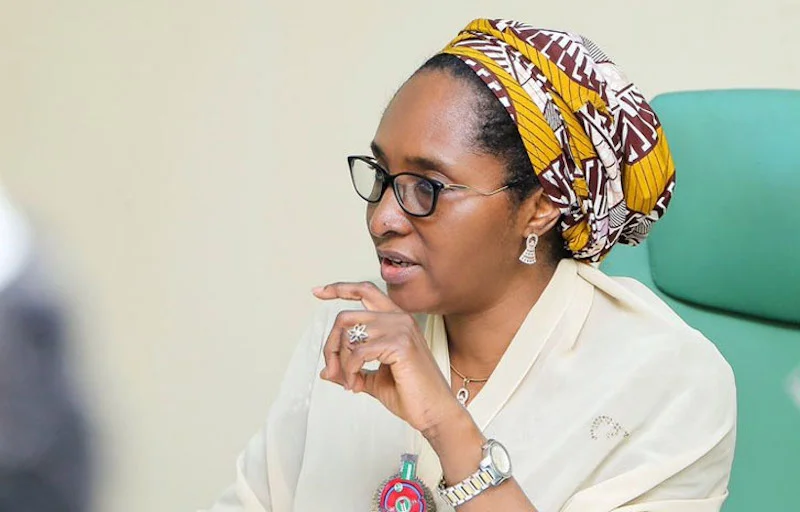Nigeria’s Minister of Finance, Budget and National Planning, Mrs. Zainab Ahmed, revealed during the public presentation of the 2023 budget details in Abuja that the Federal Government has been borrowing to fund petrol subsidies, a practice she deemed totally unsustainable. Reported by Emma Ujah, this admission, coupled with plans to address a N22.7 trillion Central Bank of Nigeria (CBN) Ways & Means debt and ongoing Stamp Duty investigations, underscores the economic challenges facing the nation as of August 27, 2025.
Unsustainable Subsidy Funding
Ahmed disclosed that the petrol subsidy, costing a significant amount, has been financed through borrowing. She noted that the subsidy regime would persist until mid-2023, following an 18-month extension announced in early 2022, with N3.36 trillion allocated for the period. This reversal from the initial plan to end subsidies in July 2022 came after labor threats and political pressure convinced President Muhammadu Buhari to extend the policy, set to lapse a month after his tenure ends in June 2023. The ongoing reconciliation with the Nigerian National Petroleum Company Limited (NNPCL) aims to clarify crude oil revenues and federation account allocations.
Addressing the Ways & Means Debt
A contentious issue is the securitization of the N22.7 trillion borrowed from the CBN via the Ways & Means advance. Ahmed announced plans to engage the National Assembly (NASS) to resolve disputes over this process, which involves packaging the debt into securities for investors. She explained that securitization could reduce the interest burden—from the current Monetary Policy Rate (MPR) plus 3 percent (19.5%) to about 9%—potentially lowering the N2 trillion interest projection for 2023 from N1.2 trillion. This move aims to ease fiscal pressure, though its success hinges on legislative approval.
Economic Diversification and Revenue
Ahmed highlighted a diversified economy, with oil revenue contributing only N2.29 trillion (22% of projected revenues) to the 2023 budget, while non-oil sources account for 78%. Non-oil taxes are estimated at N2.43 trillion, independent federal revenues at N2.62 trillion, and other revenues at N762 billion. This shift reflects a strategic pivot, though the sustainability of this diversification remains under scrutiny.
Stamp Duty Investigations
The minister also addressed allegations of substantial Stamp Duty funds held by the CBN, stating that investigations by a committee and security agencies are ongoing. “We are anxiously waiting for the outcomes of these investigations. If funds are realized, it will help us fund the deficit in the 2023 budget,” she said. However, the presidency and CBN’s Director of Corporate Communications, Mr. Osita Nwanisobi, have dismissed these claims as implausible, citing the N89 trillion figure as exceeding the total assets of Nigerian banks (around N63 trillion).
2023 Budget Deficit and Debt Outlook
The 2023 budget projects a deficit of N11.34 trillion, or 5.03% of GDP, surpassing the Fiscal Responsibility Act’s 3% limit, prompting calls for legal amendments. Financing will include N7.04 trillion in domestic borrowings, N1.76 trillion from foreign sources, N1.77 billion in multilateral/bilateral loans, and N206.18 billion from privatization. Public debt, already at N44.06 trillion by September 2022, could rise to N70 trillion if the Ways & Means securitization and new borrowings are realized, according to Debt Management Office Director-General Ms. Patience Oniha. She emphasized the need to boost revenue to reduce debt reliance.
Budget Office Director-General Mr. Ben Akabueze advocated shifting focus to revenue generation, noting the difficulty in cutting recurrent spending (N8.33 trillion, including N200 billion for social programs) to increase the N6.46 trillion capital expenditure (30% of total). Debt service, at N6.31 trillion (29% of expenditure), rose 71% from 2022 estimates, including N1.2 trillion for Ways & Means interest.
Sectoral Allocations and Elections
The budget allocates N173 billion to the Independent National Electoral Commission (INEC) for the 2023 general elections, the largest single sectoral allocation of N2.98 trillion (13.4%) goes to defense and security, followed by infrastructure (N1.24 trillion, 5.7%), education (N1.79 trillion, 8.2%), and health (N1.15 trillion, 5.3%). These figures reflect priorities amid fiscal constraints.
Ongoing Relevance
As of August 27, 2025, the issues raised—subsidy sustainability, debt securitization, and revenue diversification—continue to shape Nigeria’s economic discourse. The transition from Buhari’s administration and the outcomes of NASS engagements and Stamp Duty probes remain critical, with the 2023 budget’s legacy influencing current fiscal policies.






